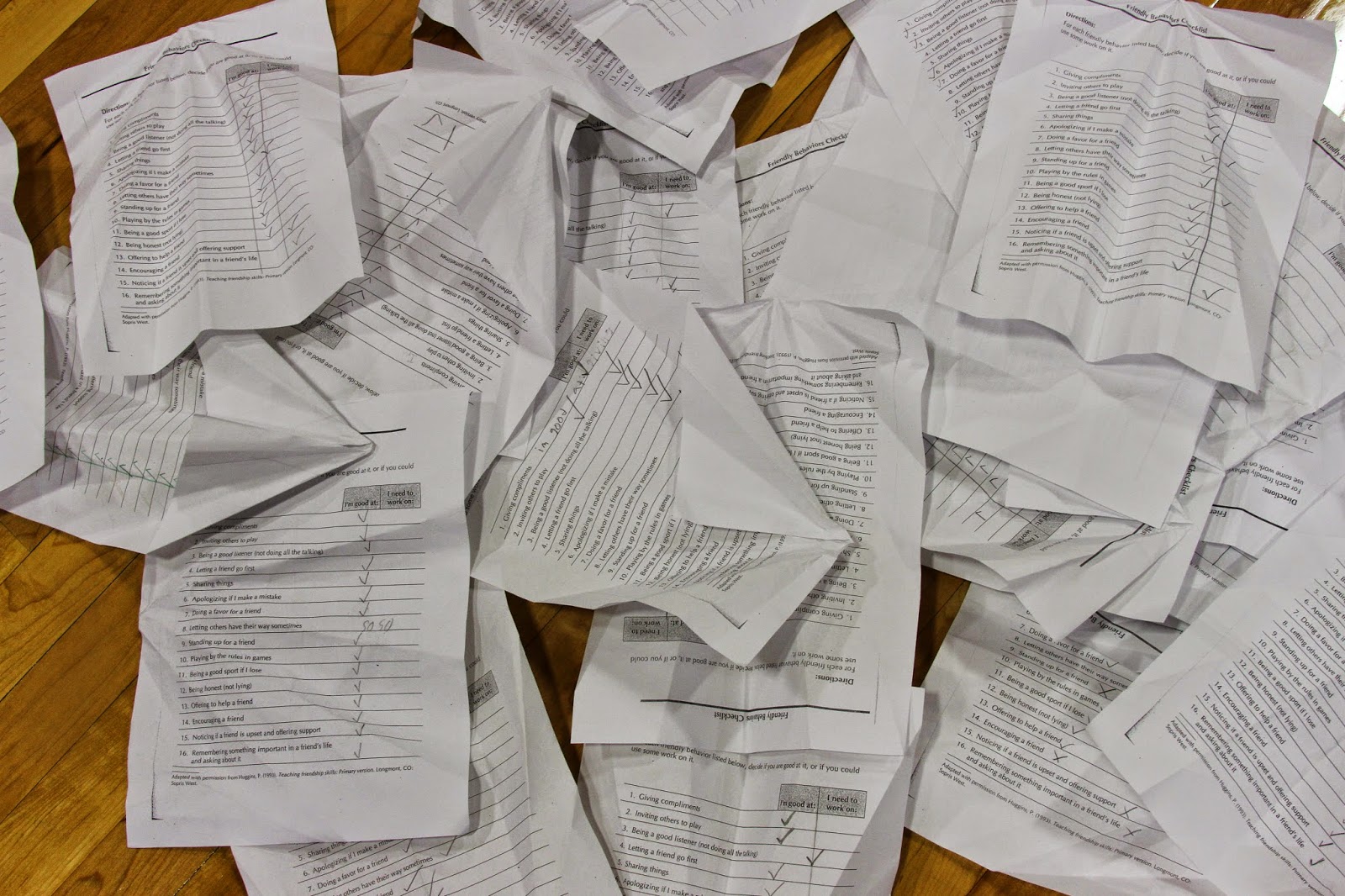We followed this class with a related activity where they were asked to fill out a Friendly Behaviors Checklist, where they were asked to rate themselves on such qualities as "inviting others to play, " or "being a good sport if I lose". Students responded as either being good at it or needing to work on the skill. The honesty in their responses allowed them to think about what goals they would like to accomplish as they develop their own friendship skills. After a bit of discussion, one of the students asked me if he could make a paper airplane out of his page, and, after a bit of thought, I decided that it would be a great idea! So we encouraged all of the students to make paper airplanes with their quiz sheets, and after they were completed, threw them up in the air (at the count of 3), and then pick one up to read. As the students did not write their names on the papers, anonymity was preserved! The point was that the students had the opportunity to see that we all have friendship goals to work on as we go through our lives. They also found that the most common response needing work was "Remembering something important in a friends' life and asking about it"!
Airplanes flying
Airplanes landing
What they looked like
And, as you know, the students love to role play, so we finished this exercise with groups of 3 role playing the various scenarios on the quiz page. They had such fun with this and did such a great job! They asked to do this more frequently (the role playing, not the paper airplanes, although, they no doubt would enjoy more of that as well)!So congratulations to the 4th Graders for being such wonderful, caring friends and airplane flyers!



